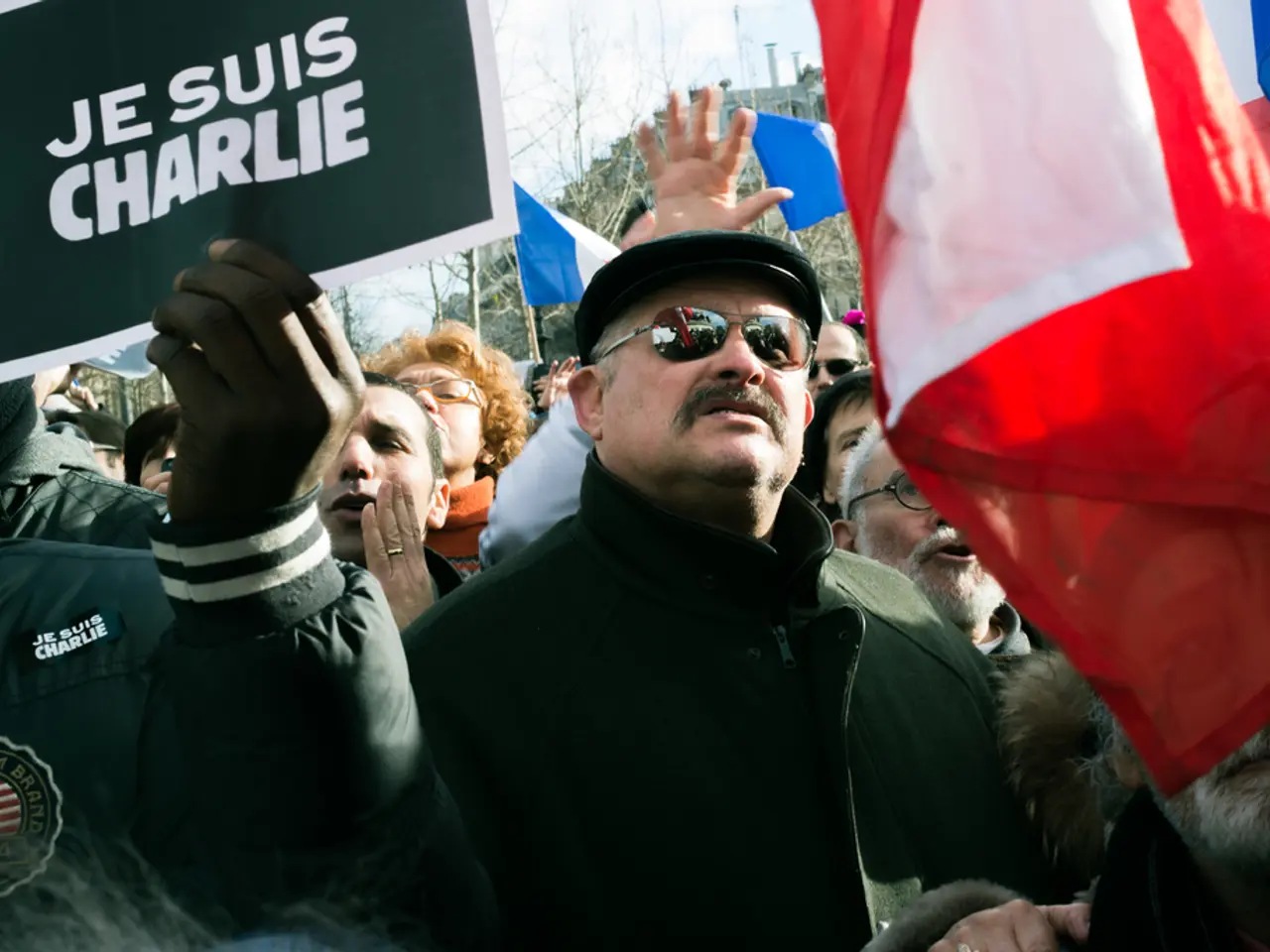Raging Discontent in Luanda Over Skyrocketing Cost of Living Expenses
In the heart of Angola's capital, Luanda, violent protests have erupted, causing significant disruption to daily life. Public transport has largely come to a standstill, with many banks and shops closed or operating for limited hours as companies encourage their employees to work from home.
The unrest was sparked by the government's decision in July 2025 to raise diesel prices by about one-third and eliminate fuel subsidies, a move that has severely impacted the informal transport sector, particularly the blue-and-white Candongueiros, nine-seater minibuses, which are crucial for many Angolans' daily transportation. This decision, coupled with widespread dissatisfaction over rising living costs and a taxi strike over high fuel prices, ignited the protests.
The protests started peacefully on July 12, with hundreds of people gathering in Luanda neighborhoods like São Paulo, aiming to rally at central locations such as Largo 1º de Maio to express their dissatisfaction with anti-social economic policies. However, police responded with tear gas, rubber bullets, and excessive force, injuring multiple protesters and making arbitrary arrests. Human Rights Watch and Amnesty International strongly condemned the police brutality and called for impartial investigations and accountability.
The unrest escalated further in late July, with the taxi drivers' three-day national strike starting July 29. Violent clashes, looting, and vandalism occurred across Luanda. Police detained over 500 people, and official reports confirm at least four deaths, though independent sources and Amnesty International report up to 22 people killed, 197 injured, and over 1,200 arrested overall during the crackdown. Security forces used lethal force widely, with documented home raids without warrants and indiscriminate shooting, provoking serious human rights concerns and demands for justice from international observers.
The riots, mainly carried out by youth, have led to significant property damage and disrupted urban transportation, increased violence and insecurity, and economic distress following the fuel price hikes and ensuing repression of dissent. The protests expose deep dissatisfaction over economic policies and governance in Angola, highlighting tensions between citizens’ rights and state repression amid an ongoing economic crisis despite the country's oil wealth.
Angola, a country rich in oil, gas, diamonds, and minerals, continues to struggle to distribute its wealth equitably. The majority of the population has not benefited from the country's riches. This economic inequality, coupled with the recent fuel price hikes, has fueled the protests.
It is important to note that Angola has been continuously ruled by the former Marxist-oriented liberation movement MPLA since independence 50 years ago. João Lourenço, the state president of Angola, was re-elected in 2022. He has highlighted the fight against corruption in public offices and cooperates with the International Monetary Fund (IMF) to balance the state's finances.
Despite the ongoing unrest, it is crucial to foster dialogue between the government and the citizens to address the root causes of the protests and work towards a more equitable distribution of resources for the benefit of all Angolans.
References:
- BBC News
- Amnesty International
- Human Rights Watch
- Al Jazeera
- The protests, ignited by economic policies and fuel price hikes, have escalated into a significant general-news event in Angola, with the unrest also falling under crime-and-justice category due to the violent clashes, looting, and vandalism.
- Amidst the ongoing politics of Angola, marked by economic inequality and the continuous rule of the MPLA since independence, fostering dialogue between the government and the citizens appears crucial for addressing the root causes of the protests and working towards a more equitable distribution of resources in line with the country's oil wealth.






